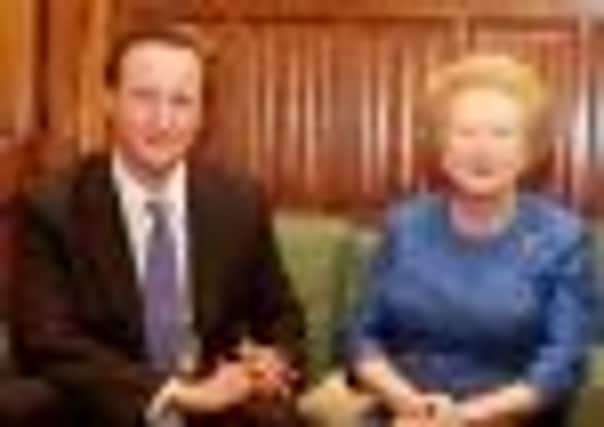Leader: A divisive but iconic figure


Majority Scottish opinion, it is safe to say, will be unfavourable, which, in quite a few cases, is probably putting it mildly.
Is this justified? After all, when foreign political observers view recent British history, they are inclined to share the opinion of present Prime Minister, David Cameron, that she was the country’s greatest peace-time premier. They recall a country in the 1970s which appeared to be in terminal decline, disregarded abroad and domestically riven by strikes, and where trades unions appeared to be more powerful than elected leaders.
Advertisement
Hide AdAdvertisement
Hide AdBut by the 1990s, Britain’s voice in foreign affairs was being listened to again, even in the EU of which she was so critical, and the British economy, where strikes had become almost unheard of, had regained its strength. That happened because of her, and not despite her.
It is also true, however, that she was a lucky politician. The invasion of the Falkland Islands in 1982 and its subsequent recapture by British forces was a pivotal event. Although she took an enormous risk in ordering the task force to the South Atlantic, had that event not occurred, and the operation been a success, she would probably have lost the subsequent election. But Margaret Thatcher’s determination to oust Argentina prevailed, changing the country’s mood from one of fatalism to optimism.
In that task, she used every ounce of her persuasive skills to extract the assistance, against most American opinion, of US president Ronald Reagan, and even of French president François Mitterrand. The stature she gained from the Falklands success gave her high standing among her foreign peers, which she used to considerable effect when, for example, negotiating Britain’s opt-outs from the Maastricht Treaty.
She was lucky, too, with her political opponents. The Labour Party chose as leader the intellectual and charming but hopelessly inept Michael Foot. Thus, where she might have been a historical footnote as Britain’s first and failed female prime minister, she won the 1983 election, against the economic background of having created mass unemployment for the first time in 50 years.
However, with the Scottish ability to disconnect Scotland from Britain, it is through that lens of domestic discord that Scots view Baroness Thatcher. Memories of the hardships of the miners’ strike of 1984-85; of factory gates finally closing at Bathgate, Linwood and other places too numerous to mention; of the shipyards falling silent; and finally the end of Ravenscraig, the steel-making icon of Scottish heavy industry, left a generation scarred by unemployment. Those memories have faded, but they have not been erased.
Monetarism, the economic theory at the core of Thatcherism – that inflation was caused by printing too much money – became a dirty word, associated as it was with cuts in public spending that were still associated with yet more job losses in the public sector. Privatisation of state industries, though it had many successes and no party has subsequently pledged to reverse it, was opposed by a majority of Scots.
There were other issues which led to an irreparable disconnect with Scots and Scotland. The impact of the poll tax, or community charge as Baroness Thatcher unsuccessfully tried to call it, was lacerating. It was meant to replace “the rates”, which were regarded as unfair by Conservatives. But the poll tax’s flat levy paid by all, regardless of income, was demonstrably a much greater unfairness that benefited the rich and penalised the poor.
These policies, plus her uncompromising hostility to any idea of devolution – an idea which came to embody the hopes of those opposed to the Thatcher government – meant that, to Scots, there was a gross mismatch between what foreign eyes might see and what real life was like. If Baroness Thatcher’s Conservatives were supposedly restoring British greatness and mending the economy why, many Scots asked, were so many of their fellows out of work and being penalised by an unwanted and unjust tax?
Advertisement
Hide AdAdvertisement
Hide AdHer forays north of the Border to explain what it was all about did not help either. Unfair though it may have been, her voice grated, as did her manner in the eyes of many Scots.
And in the end, the decline in Conservative fortunes under her leadership, briefly stemmed under John Major, eventually helped to bring the Scottish Parliament into being. The campaign for that parliament had its roots in opposition to Thatcherism.
So how should we judge Margaret Thatcher? She made a huge impact on this country, changing it fundamentally – something most prime ministers cannot hope to do. Love her or loathe her, Margaret Thatcher cannot be rated as anything other than one of the most important prime ministers in the post-war history of the United Kingdom.